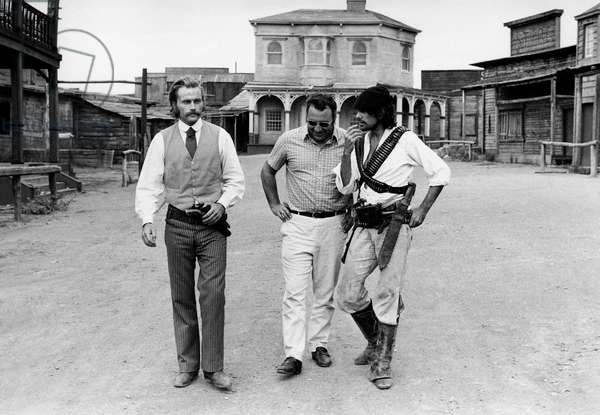Sergio Corbucci, an illustrious figure in the history of Italian cinema, stands as a luminary director renowned for revolutionizing the Western genre. Born on December 6, 1926, in Rome, Italy, Corbucci’s contributions to cinema are marked by his innovative storytelling, distinct visual style, and his significant influence on the Spaghetti Western genre.
Early Beginnings and Career Trajectory
Corbucci’s cinematic journey began in the 1950s, working as an assistant director and screenwriter. However, it wasn’t until the 1960s that he gained recognition for his directorial prowess. His directorial debut in 1962 with “Minnesota Clay” marked the inception of his distinctive approach to filmmaking. While the film didn’t garner substantial acclaim, it laid the groundwork for Corbucci’s distinctive style and thematic elements.
The Evolution of the Spaghetti Western
Corbucci’s magnum opus came with the iconic film “Django” in 1966, a gritty and unconventional take on the Western genre. This movie marked a paradigm shift in the Spaghetti Western landscape, showcasing a darker, more morally ambiguous protagonist than the archetypal heroic figures seen in traditional Westerns. The film’s success catapulted Corbucci to international recognition and established him as a maverick in the genre.
Innovative Storytelling and Visual Aesthetics
Known for his audacious storytelling and impactful visual style, Corbucci brought a raw and gritty realism to his films. His works were often characterized by stark landscapes, extreme close-ups, and a distinct use of violence and social commentary. Movies like “The Great Silence” and “Companeros” further solidified his reputation for weaving socio-political themes into the fabric of his narratives, pushing the boundaries of the genre.
Collaborations and Influences
Corbucci’s impact extended beyond the screen through his collaborations with talented actors and crew. His partnership with the iconic Franco Nero in “Django” played a pivotal role in defining the character and reshaping the genre. Furthermore, his artistic exchanges with Ennio Morricone, a legendary composer, resulted in some of the most memorable film scores in cinematic history.
Legacy and Lasting Influence
While Corbucci’s legacy is distinctly associated with his contributions to the Spaghetti Western, his influence extends to diverse genres and filmmakers. His unique take on the Western archetype, marked by anti-heroes and social commentary, inspired future directors, leaving an indelible mark on the evolution of cinema.
Later Career and Impact
Corbucci continued to direct films well into the 1980s, exploring various genres beyond Westerns. Despite the changing cinematic landscape, his earlier works remained a touchstone for filmmakers, continuously referenced and revered for their boldness and originality.
Conclusion
Sergio Corbucci’s impact on cinema is immeasurable. His audacious storytelling, visionary style, and trailblazing approach to the Western genre solidified his place among the pantheon of influential filmmakers. His legacy endures, with his films continuing to captivate audiences, and his groundbreaking techniques inspiring generations of directors to push the boundaries of storytelling and visual expression in cinema.
Watch his movies on www.movieitalyplus.com
Read more articles here!






